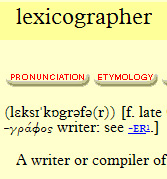
This entry has been updated (OED Third Edition, September 2009 most recently modified version published online December 2021). Particular examples are given at separate senses and lemmas. Red often designates a thing in which the colour forms a natural or obvious mark of type or class, as red wine, red corpuscle, etc.

The numerous varieties of red are frequently distinguished by prefixed nouns or adjectives, as blood-, brick-, cherry-, fire-, flame-, flesh-, robin-, rose-red dark, dull, light, lively red fiery, foxy red brown-, orange-, yellow-red brownish, yellowish red, etc.: see the first element.

Red light has a wavelength in the approx. The term is now applied to shades that vary from bright scarlet or crimson to reddish yellow or brown (the latter esp. In early use also designating shades of purple, pink, and orange, which are now distinguished by these distinct colour terms.

Designating the colour of blood, a ruby, a ripe tomato, etc., and appearing in various shades at the longer-wavelength end of the visible spectrum, next to orange and opposite to violet of or having this colour. But, as with a respected professor or admired parent, we count on its wisdom and authority without thinking much about how it was acquired. Early Old English ræde- (in compounds), early Old English rede- (in compounds), Old English readdest (superlative), Old English reade- (in compounds), Old English ( rare)–early Middle English ræd, Old English–1500s read, Old English ( rare)– red, late Old English hread- (in compounds), late Old English reæd, early Middle English ræde, early Middle English reað, Middle English rad, Middle English rade, Middle English ræden, Middle English reedde, Middle English reid, Middle English reyd, Middle English ride, Middle English rod, Middle English rode, Middle English ryd, Middle English ryde, Middle English–1500s rede, Middle English–1500s reed, Middle English–1500s reede, Middle English–1500s 1700s rid, Middle English–1600s reade, Middle English–1600s redd, Middle English–1600s redde, late Middle English sed (transmission error) English regional (chiefly northern) 1700s– reed, 1800s– reead, 1800s– rid Scottish pre-1700 rade, pre-1700 raid, pre-1700 reade, pre-1700 redde, pre-1700 rede, pre-1700 reide, pre-1700 ride, pre-1700 ryid, pre-1700 1700s read, pre-1700 1700s– red, pre-1700 1700s– reed, pre-1700 1700s– reid, pre-1700 1700s– rid, pre-1700 1800s redd, pre-1700 1800s ried, pre-1700 2000s– ridd, 1700s 1900s– rud, 1800s rot ( northern), 1900s– reyd, 1900s– rudd also Irish English (chiefly northern) 1800s– reed, 1800s– rid, 1800s– rud. The Oxford English Dictionary has been the last word on words for over a century.


 0 kommentar(er)
0 kommentar(er)
